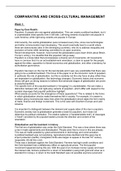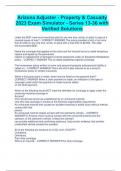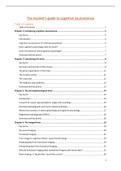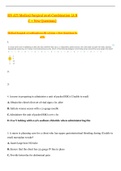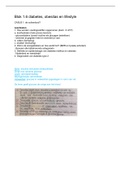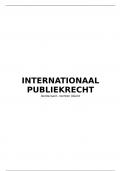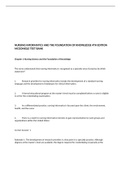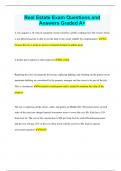Samenvatting
Summary Comparative And Cross-Cultural Management (325094-B-6) that got me a 9 for the exam
This is a summary of the CCCM course. It includes all the articles that we had to read for the lectures (including the syllabus). The only article that I didn't include is the one about trust, but I made really good notes of these lectures and these notes are included in this document
[Meer zien]
